Wintering
The Quiet Season
PSA: Did you know that if you subscribe to Slow Motion Multitasking as a Founding Member, I will send you an original 4 x 6 drawing in the post! What a deal! Perhaps you could give it to someone as a gift for the holidays?? Or as a gift to yourself, for the holidays!
I write to you a little groggy with jet lag, having just returned from Buenos Aires where I spoke at BitBang Festival. It was bloody brilliant, and there was a whopping community of Summer Camp Island fans there which felt wonderful. I hadn’t been to a festival since promoting season one of Summer Camp, so this was the first time I’d really met fans of the show. It felt overwhelming and I found myself quasi on the verge of joyful tears the whole time. If Argentina is anything to go by, the Summer Camp community is a very gentle, thoughtful and hilarious bunch and I’m so happy to know all of you! Major shout out to Luisa who made Summer Camp cookies. Look at these grumpy Susies!
Being in the southern hemisphere felt a little bit like being in a multiverse because it was almost Summer, and all the fruit trees were in full bloom - the same fruit trees that are lying dormant here. Which brings me to the subject of the day: Winter.
We’re getting into hibernation season and putting on our trackie bums* and it reminded me of a book I read last year, called ‘Wintering’ by Katherine May. It talks not about winter as a season, but as a moment in a life. Her writing, among others, was incredibly helpful to me as I transitioned out of my job last January, and I wanted to share some of the things that resonated with me here, in case anyone else is going through their own fallow season.
Post work grief, or post writer depression, kicked in for me when Summer Camp ended. I finished working on the show on January 14th and immediately got a chest infection. In my memory, I handed in the last drawing of Susie, sneezed, and was suddenly disgustingly sick. I later learned that this is called The Let Down Effect.
The Let-Down Effect occurs when the body produces an immune response (i.e., we get sick or experience some type of headache or flare-up) just after a stressful event has subsided. The Let-Down Effect is the equivalent of going from 100mph to a dead stop in a car. It's not good for your car, and it's not good for your body.
I am grateful for this period in hindsight, because it made it physically impossible for me to do anything at all. Having spent 5 years working all the bloody time, I had no idea what to do with myself without that routine - especially when I was still living in my place of work. Every morning I’d walk straight to my computer and sit down to check my invisible emails. But I was so sick and so tired.
Then I remembered my sister had recommended listening to Louis Theroux’s conversation with Micheala Coel (if you haven’t seen ‘I May Destroy You’ I highly recommend it). She spoke very thoughtfully about her grieving process after finishing the show:
I think this is a process that I'm in right now of grieving the end of a big project. I'm sure maybe you experienced this, when you finish a big thing and it becomes the center of your world, then, boom, it's gone. And there's nothing, you know, I would work 16 hour days without even realizing that's what I was doing. And now there's sort of like a gaping hole where that work once was. And it seems so easy to just fill it with the next thing, to fill it with anything, to fill it. But instead, I am deciding to sit in this place of actually emptiness and uncertainty a little bit like my choice to not go back to the certainty of Christianity. I'm going to sit in it. I'm going to grieve. I'm going to do things like wake up, I walk for two hours in the morning, I run in the morning, I meditate, I see my friends, I see my family, all these things that I neglect when I'm working a lot. And when that process is done, I'll begin to think a little bit more about opportunities. And it's never done me bad. Don't look back and say I should have taken that great opportunity. I'm quite happy doing my little thing.
It was revelatory to me, that once the show ended I would be able to allow myself time to grieve, instead of squashing down all those emotions so I could ‘rally’ and take on a new job. Someone once advised me to treat periods of grief like a broken bone. No one would expect you to push yourself too hard if you were injured, and the same should be true for a moment of grief.
You apply ice to a joint after an awkward fall, why not do the same for a life.
But sometimes it’s easier said than done. Once the chest infection subsided and ol’ faithful kicked in (depression), I found myself incredibly frustrated at my inability to use my brain in the way i’d been used to for the past few years. I wrote this very teenage poem.
And kept showing up to “work”
My brain was far too burnt out to work, but I felt very uncomfortable sitting still because the longer I sat, the sadder I felt. And while I love a good teenage wallow, I don’t love a full on depression. Katherine May compares a period of winter in your life to that of the season. When winter comes, you cannot wish it into being spring, however much you want to. You buckle up, put on three jackets and try to weather the season as best you can. We accept that winter is inevitable and sometimes, so is grief.
She reminds us that winter isn’t a period of death, but a period of hibernation, so that you can come back in the Spring in full bloom. Forgive the quoting below, I listened to Wintering as an audiobook and this was a note I wrote on my phone:
In winter, the leaves fall off the trees and the tree heals over the exit point to protect it from bacteria, but the buds of next spring are already there, grown in high summer. Protected from the cold by thick scales, we don’t notice them, as we think they are the skeleton of the tree. But the tree is waiting, it has everything ready; the leaves are providing a mulch, it’s ripe cones and nuts provide food for squirrels; it is far from dead. It is the life and soul of the wood, just getting on with it quietly. It will not come back to life in the spring, it will just be putting on a new coat.
I love being the life and soul of the wood, AND buying new jackets so this was very inspiring to me.
I think the worry is always that if you go into a full depression, you might never come back. That was certainly my worry at the time. Nadir is known as the lowest point in a story, but also the nadir of an ocean tide is the point at which the water reaches its absolute lowest level before the tide begins to come back in and the waters rise again. I tried to trust the process a little more.
One of the most wonderful lessons from the book, is that if you have the rare luxury of knowing that a (sorry) ‘winter is coming’ you can prepare for the incoming frost. Freeze a bunch of home cooked meals when you are not yet sad, knit yourself some soft socks, take a page out of Pepper’s book and tell your friends that you might need some ‘nice attention’ in the coming months, download your favourite soothing TV shows, make a sad playlist, etc etc and so forth, before the darkness takes you.
Please feel free to add any of your own caretaking routines in the comments below.
This letter, shared in one of my favourite substacks ‘Letters of Note’ felt relevant today:
The November gloom descends, although some early mornings and late afternoons have exquisitely delicate skies with masses of flocculent clouds. And, of course, the end is not yet. It is when one lights the lamps at 4 o’clock that the dark is hard to bear. But, as we have agreed, an hexagonal universe would be even more depressing. At least we have an oval one.
Louise Bogan
Letter to Ruth Limmer, 4th Nov 1961
Selected Letters of Louise Bogan
One of the things that gave me solace was an interview with Andrew Solomon who wrote one of my favourite books on depression called The Noonday Demon. I think I had it in my head that during a period of sadness I should be making my best work, stuck on some dated idea that tortured artists are in touch with some spiritual realm and while I was sad, I shouldn’t miss out on an opportunity to make something brilliant. But Andrew points out that people usually make that great work after a period of depression, not during. When you are depressed, more often than not, all you can do is lie there.
So I just lay there. Eventually I went to the UK to lie THERE because I needed a hug from my mum, a walk with my dad, and to well and truly grieve something worthy of grieving.
Like the hermit card in Tarot, I hermitted up, did no work, and waited for the time I would re-emerge as a powerful witch in Spring.
If you are enjoying slowmotion multitasking and want to support it, you can become a paid subscriber here!
*British for sweatpants


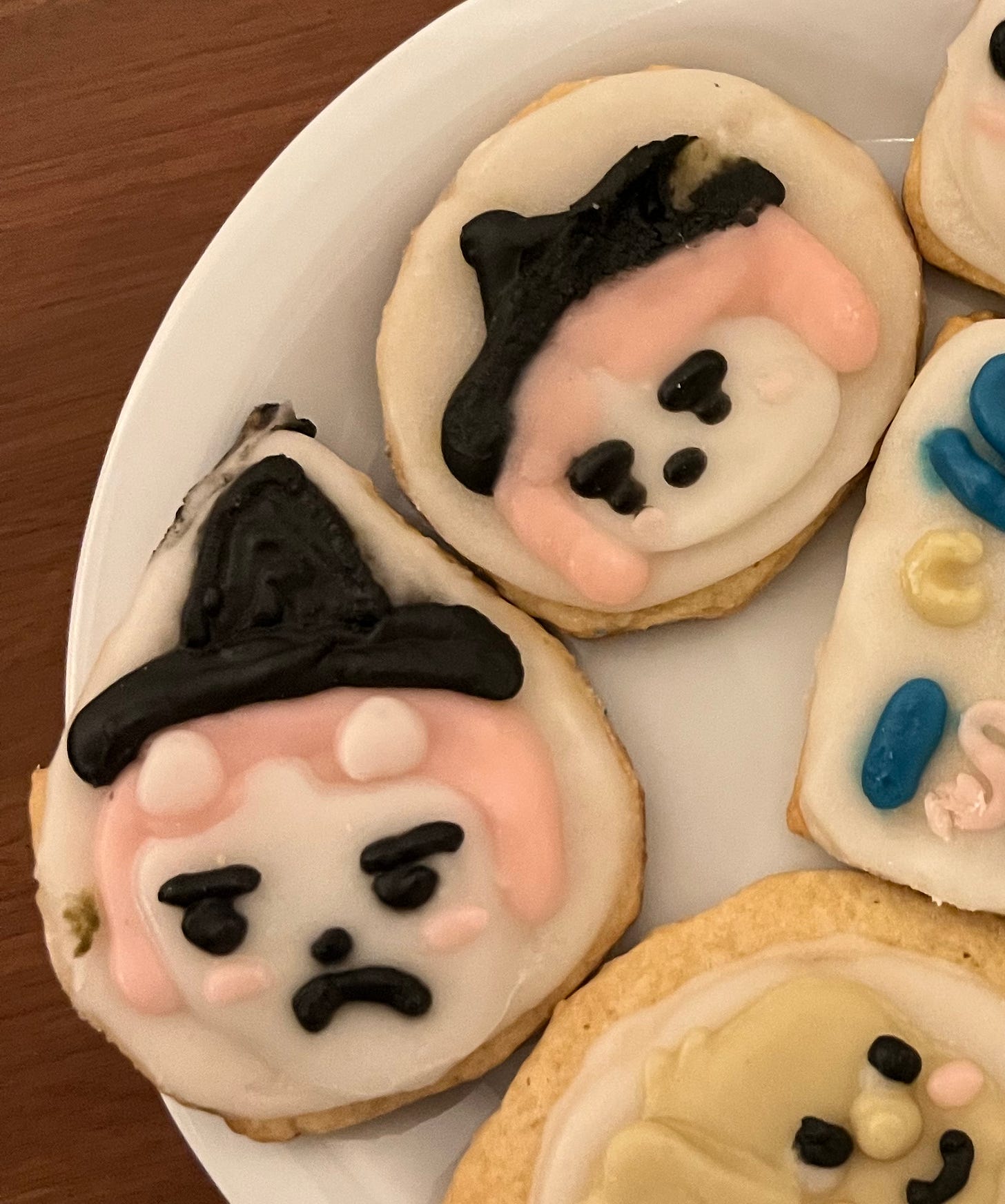
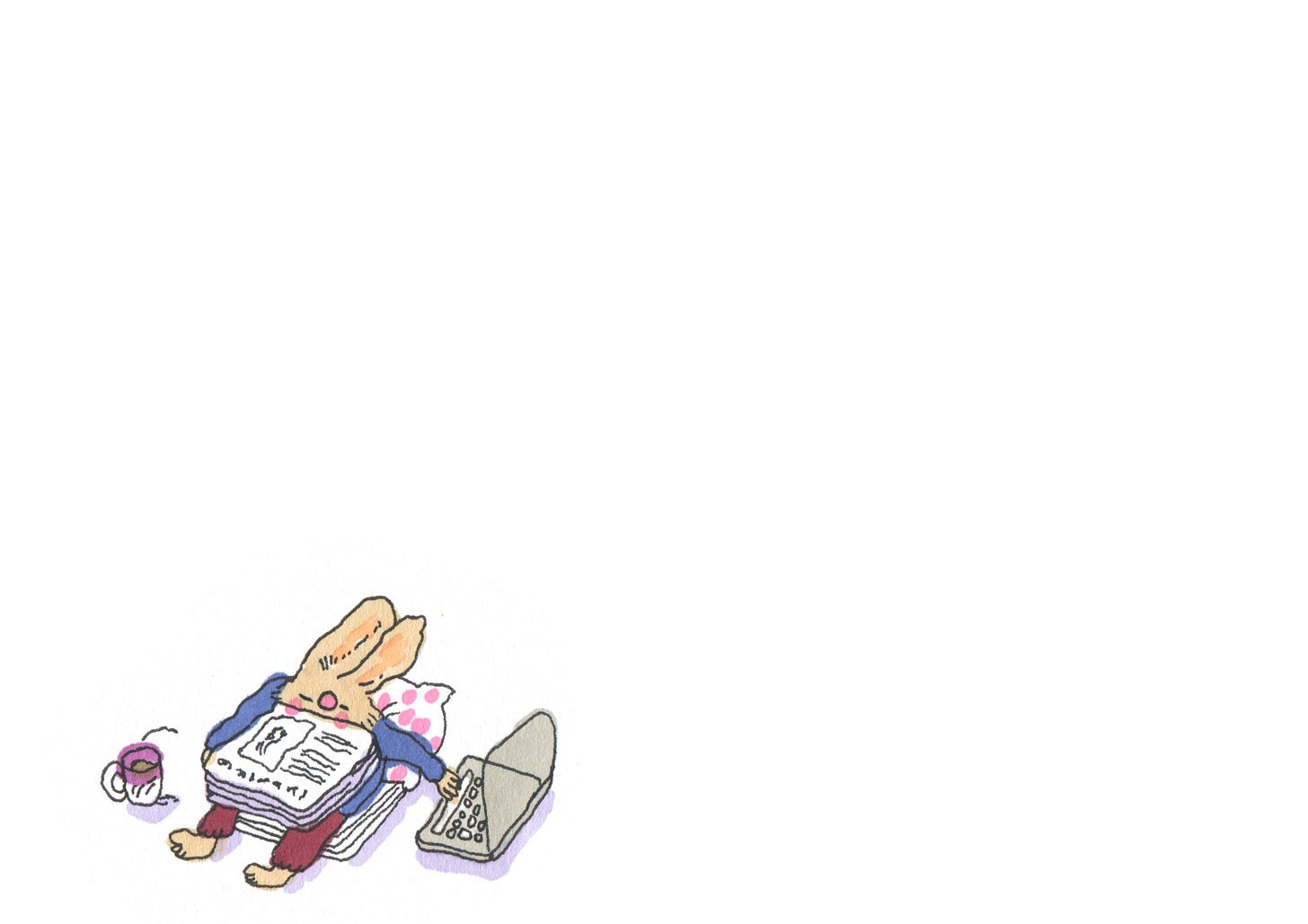
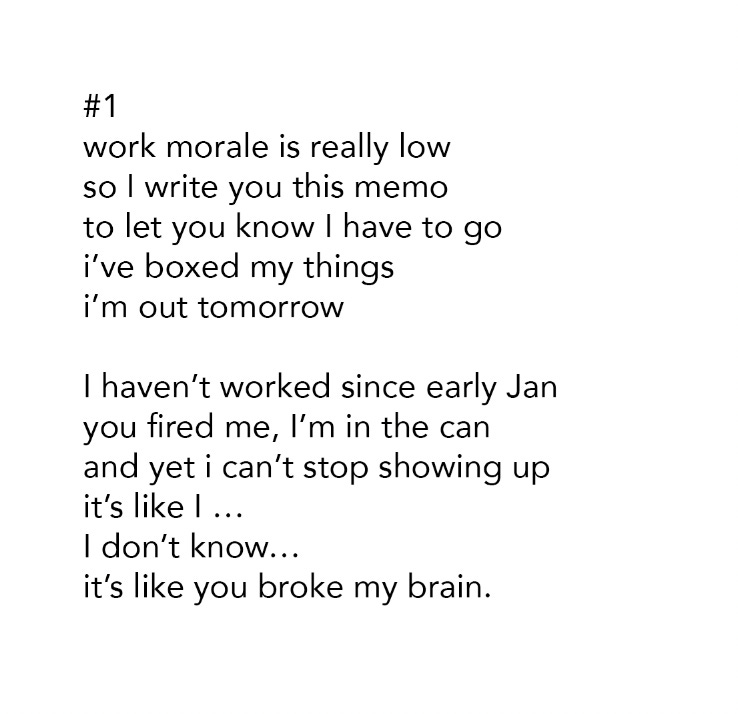
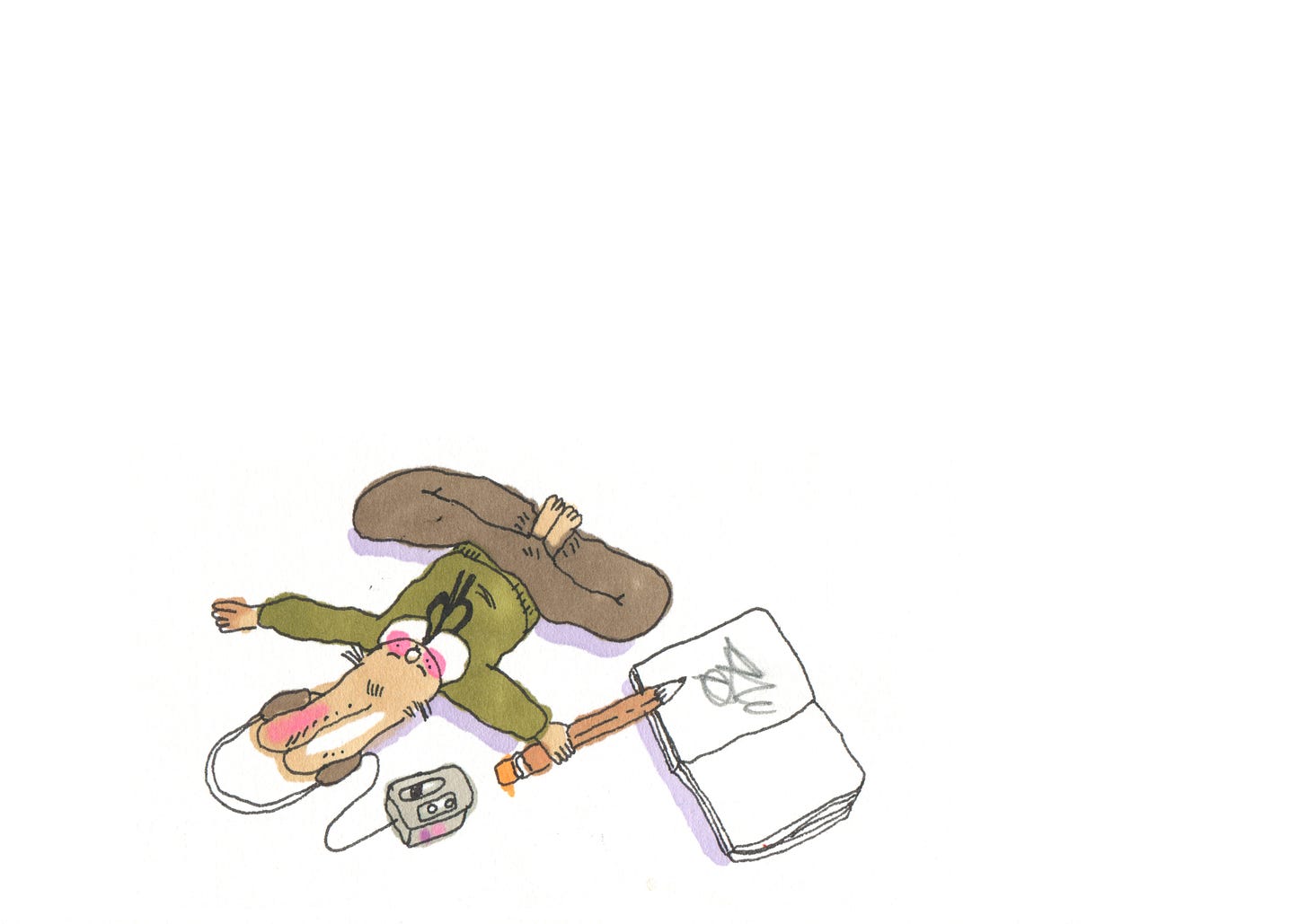
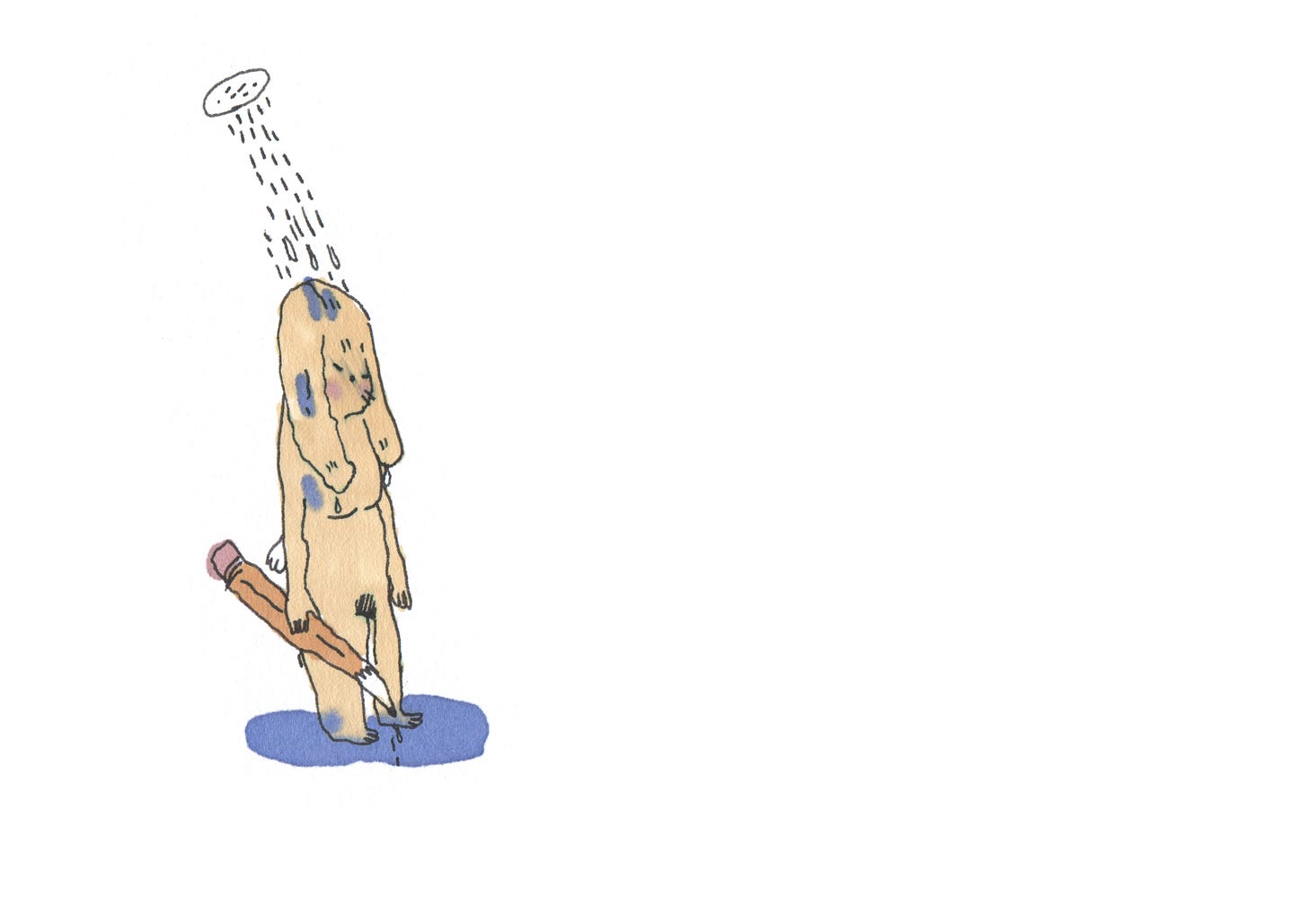
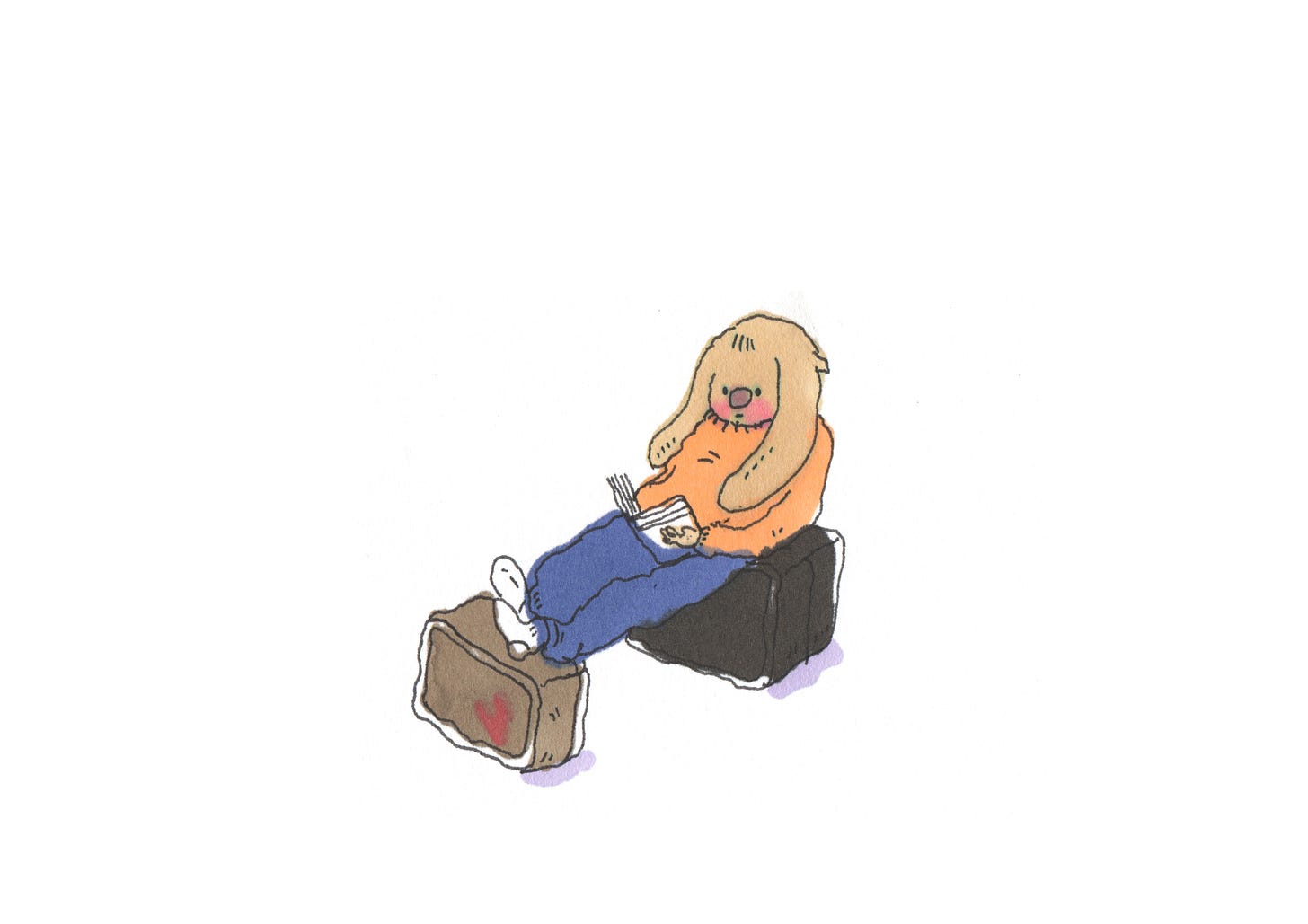
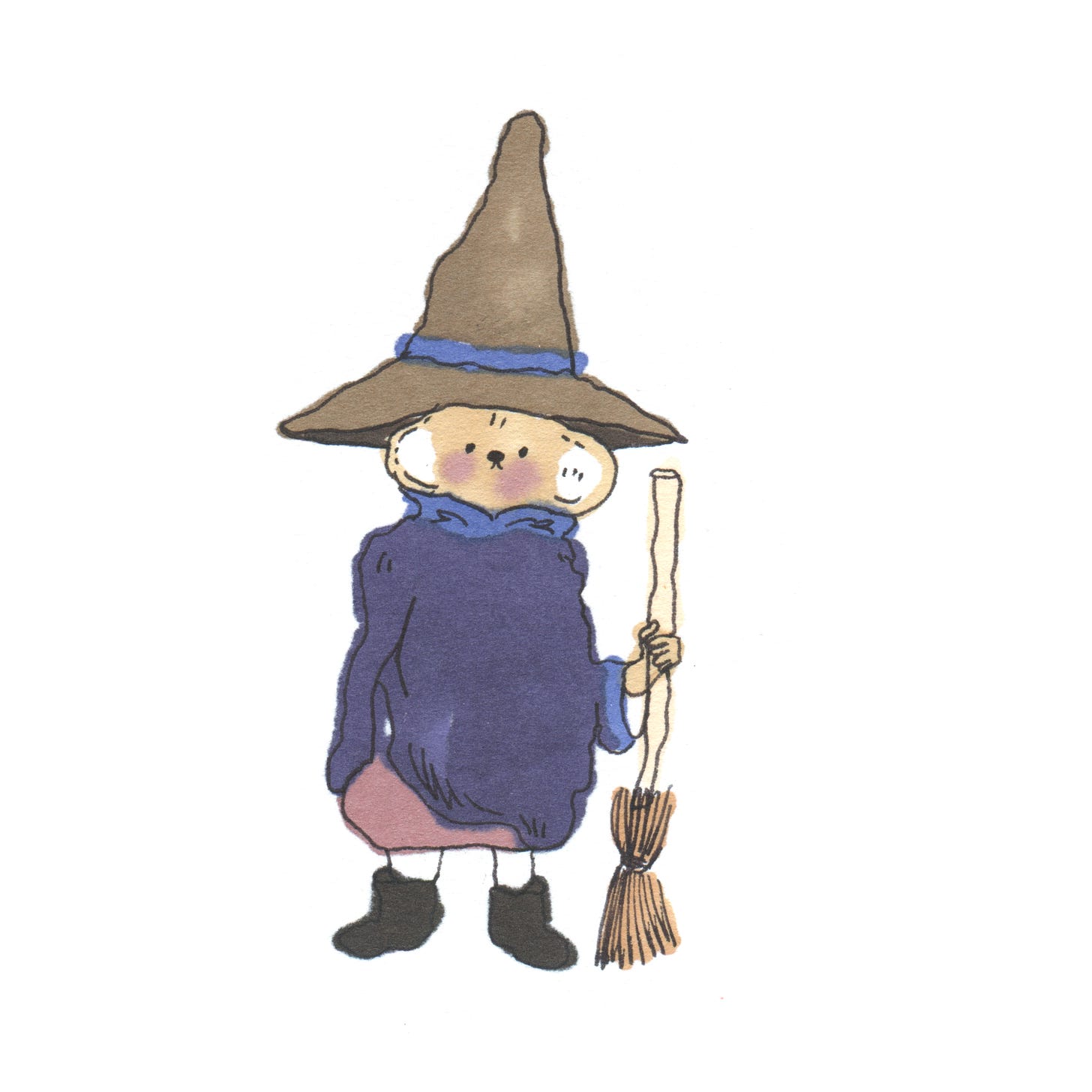
I so enjoyed reading this at my desk today with my heater on and a very out of character rainstorm in Los Angeles brewing outside my window. I was so interesting to hear that the Let Down Effect has a name! I have some first-hand experience with something similar, in September of this year, and it immediately popped into my mind while reading this.
This most recent summer, I had probably one of the most stressful work periods of my life (I work as an art studio manager and painting assistant). For about a month and a half, I was working for 50-60 hours every week under very high stress conditions, doing physical labor with intense concentration all day for most of the time I would be awake. Two days after we finished all the work(the show went great <3), I was driving to my friend's house to watch the bachelorette with her and her roommates and I started feeling super strange in my face. I tried to scrunch it up and blink both eyes, but I started feeling like I couldn't move one side of my face. By the time I got to her house, it was completely unresponsive and I could not move it. I was terrified and thought I was having a stroke, but one of her roommates (an EMT!) told me she was sure I had Bell's Palsy. They calmed me down, hydrated me & fed me nectarines.
The next morning I went to Urgent Care, and got diagnosed with Bell's Palsy, paralysis of half of the face due to any number of reasons including stress, infection, Lyme Disease, mystery reason, etc. This lasted about 2.5 months and came with super sensitive hearing + facial pain on the affected side. ANYWAYS at present day I am mostly healed but this is exactly what I've been dealing with for this last whole autumn so it was crazy gratifying to see it talked about in this post today 😭❤️
Truly loved and connected with this post (much like all your other posts). Your writing is so sooting, its like visiting my darkest days (not as a perticipant but a visitor) with a gentle guide. Thank you for making my day brighter.